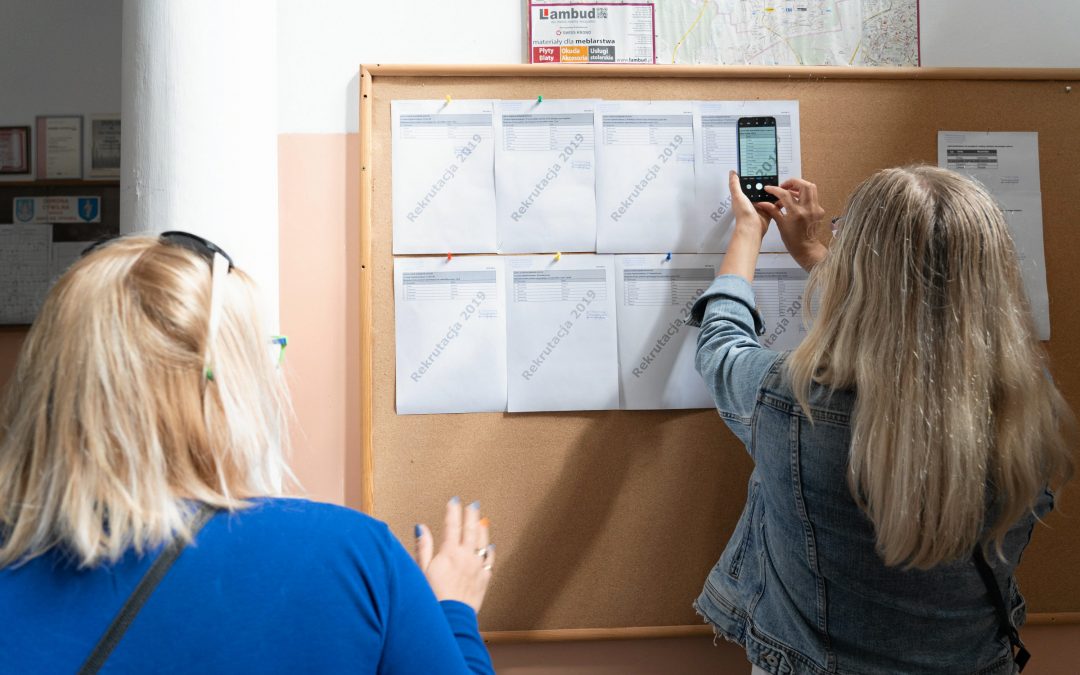Thousands of students applying for a place in high school in some major cities did not get into any of their choices, and there are concerns that the number of reserve places available is insufficient.
The shortage of places has been blamed on successive school reforms implemented by the current and former governments, causing this year’s cohort of pupils moving to high schools to be around 50% larger than normal.
Under the current Polish education system, all pupils complete eight years of primary school, before attending either high school, technical college or vocational school. Places are offered on the basis of exam results as well as points awarded for grades and other achievements.
Kumulacja roczników. Są pierwsze łzy absolwentów podstawówek. Część nie dostała się nigdzie https://t.co/L5SlWab4dw pic.twitter.com/jtrKTDDKRZ
— Onet Wiadomości (@OnetWiadomosci) July 19, 2022
In Kraków, Poland’s second largest city, whose schools announced the results of recruitment yesterday, 2,600 pupils applying for admission to high school have not received a place at any of their chosen schools, compared to 1,300 last year, reports Onet.
The city will have around 800 additional places available in less popular schools in a supplementary round of recruitment, but almost all are in technical colleges or vocational schools.
More than 9,000 pupils have been awarded places in Kraków’s secondary schools, almost 1,500 more than last year. Over half – 57% – will attend high schools and 37% technical colleges, with the remainder going to vocational schools.
Ponad 9000 kandydatów (ze względu na tzw. „kumulację roczników” to niemal o 1500 więcej niż w ubiegłym roku) dowiedziało się dzisiaj, czy będą kontynuować naukę w wymarzonych szkołach ponadpodstawowych. Na tych, którym się to nie udało wciąż czeka ponad 800 miejsc#edukacja pic.twitter.com/a39OpoARhi
— Kraków (@krakow_pl) July 19, 2022
In the city of Poznań, which announced its results today, over 3,800 pupils have not been offered a place anywhere in the first stage of recruitment, compared to more than 9,300 who were accepted, reports local news site epoznan.pl.
In Łódź, whose schools also published their lists yesterday, 367 pupils did not get a place, although the city’s mayor assured that there would be room for them, mostly in high schools, in the second round of admissions, reports Gazeta.pl. The number of candidates in the city is 39% higher than last year, while there are just 27% more places available.
Schools in three other provinces – including Masovia, where Warsaw is located – are publishing their results today, with the rest of Poland to follow later this week.
Kraków city hall encouraged pupils who did not get into their chosen schools to consider the less popular technical and vocational options, which “teach many interesting and valuable professions” and “give students the chance to learn a specific profession”. They also noted that another option is private schools, which are not included in the statistics.
Kraków’s authorities said the situation is the result of the “cumulation of year groups” resulting from a law introduced by the previous government, led by Civicl Platform (PO), in 2014, which lowered the age of starting primary school from seven to six.
Children born in 2007 as well as the first half of 2008 therefore started school together in a larger entry that year and are now entering secondary education.
The 2014 law was itself reversed under reforms implemented by the current Law and Justice (PiS) government in 2017. This also repealed most of the changes of the previous educational reforms including the introduction of middle schools (gimnazjum), which has added to the current difficulties, reports Gazeta.pl.
The recent restructuring of the school system means that two year groups are entering high-school at the same time (almost 370,000 more children than last year). Around 7,000 were left without a school in Warsaw, over 2,500 in Kraków, and thousands more around the country.
— Notes from Poland 🇵🇱 (@notesfrompoland) July 9, 2019
Critics have highlighted the negative effects on children of the repeated changes, exacerbated by the difficulties they faced during the pandemic.
This year, Polish schools have also had to deal with an influx of children fleeing the war in Ukraine. Over 7,000 Ukrainian refugee pupils took the primary school leaving exam this year. Some 374 applicants for places in Poznań – around 3% of the total – were Ukrainian citizens (some of whom may have already been in Poland before the war).
The larger-than-usual number of candidates also comes at a time when the Polish education system is more overstretched than ever. Last year Poland saw record levels of teacher vacancies.
Main image credit: Fot. Arkadiusz Stankiewicz / Agencja Gazeta

Ben Koschalka is a translator, lecturer, and senior editor at Notes from Poland. Originally from Britain, he has lived in Kraków since 2005.




















